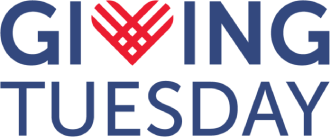While year-end remains the busiest giving season in the US, long-term declines in charitable giving trends remained in Q4 2023. FEP’s latest quarterly data, released and announced at AFP ICON 2024, acutely shows the growing challenge for American nonprofits: a near-universal decline in fundraising metrics, including dollars raised, donor counts, and retention when compared to 2022.
While the declines were minor compared to weakening in previous quarters, a drop in the total number of donations from all donor sizes demonstrates an evolving challenge for fundraisers. Despite these downward trends, small organizations showed the highest resilience, achieving some fundraising stability year-over-year.
The full Q4 2023 report is available here.
The Fundraising Effectiveness Project (FEP) is a collaboration among fundraising data providers, researchers, analysts, associations, and consultants to empower the sector to track and evaluate trends in giving. The project offers one of the only views of the current year’s fundraising data in aggregate to provide the most recent trends for guiding nonprofit fundraising and donor engagement. The FEP releases quarterly findings on those giving trends, released both via downloadable reports at afpglobal.org/fep and in a free online dashboard.
FEP Q4 2023 Report Key Takeaways
- Q4 data shows a persistent decline in all fundraising metrics, including a 2.8% YOY drop in dollars raised. This includes near universal decline in the frequency and total amount of donations by donors of all sizes, highlighting a continuing trend that began in 2021. Donors contributing more than $50K were the largest driver of the overall decline in funds donated, accounting for over half of all dollars raised despite representing only 0.3% of donors.
- An overall decline in donors was also evident in the Q4 data, with a 3.4% drop year-over-year. This decrease was largely due to fewer donors contributing less than $500, a group which still accounted for over 80% of all donors. This was matched by a 2.5% decrease in donor retention, which appeared across all donor sizes and types.
- While most organization sizes experienced a decrease in fundraising totals, small organizations (≤ $100K) saw stable dollars raised in Q4, meaning that organization size has become a greater determining factor in fundraising performance.
- One bright spot from the Q4 figures: the number of new donors rose year-over-year, increasing by 2.3%. This is the first time new donor counts have risen since Q1 2021.
“While some analysis is optimistic about fundraising results over the next two years, including recent predictions from the Lilly Family School of Philanthropy, it takes time and effort to buck long-term trends,” noted Woodrow Rosenbaum, Chief Data Officer of GivingTuesday. “Our Q4 FEP data shows that significant challenges still remain for potential recovery in the sector. Strengthening the social sector in 2024 will require nonprofits of all sizes to focus on frequent engagement with supporters and with the communities their donors are part of. Americans want to give, in both formal and informal ways, and nonprofits need to reinforce the value of giving and the impact of their work while unlocking new ways for supporters to engage with their causes.”
Based on this Q4 data, the sector as a whole needs to work together to achieve stability and growth in 2024. With early 2024 inflation still outpacing 3%, finding ways to reach out to more Americans more frequently will be crucial to capture the generosity of diverse groups.
“As we continue to face declines in donors and dollars, it is increasingly important for organizations to foster a culture of philanthropy that withstands economic fluctuations,” said Mike Geiger, MBA, CPA, the President and CEO of the Association of Fundraising Professionals (AFP) and the AFP Foundation for Philanthropy. “We need to reimagine traditional approaches to donor acquisition and retention, embrace emerging technologies to broaden outreach and engagement, and renew our focus on donor stewardship. In this era of unprecedented volatility, the ability to adapt and innovate will not only be the hallmark of successful fundraising efforts but also the cornerstone of sustained mission-driven impact.”
Lauren Sheehan, President of DonorPerfect, agrees. “The FEP data shows how challenging fundraising can be, but today there are so many new opportunities for nonprofits to engage their community and create momentum for growth. To return to higher funding levels we’ve seen in the past, organizations must focus on acquiring recurring donors and prioritize ongoing donor engagement. By taking a human-first approach to connecting with their supporters, including personalized outreach and developing data-informed strategies and plans, organizations can build stronger relationships with their community at every level. With the right mindset and technology, the sector can weather this difficult season and emerge even stronger.”
FEP reports are made possible by the generous support of collaborating data providers, including Bloomerang, Classy, Community Brands, DonorPerfect, Keela, NeonOne, and Qgiv. FEP’s partner network also includes data analysis and additional support from Bonterra. We welcome all giving platforms to join our efforts and increase our data coverage, enhancing the accuracy and accessibility of our efforts to provide measured analysis to the social sector.


